
The state of plastics
Many Co-op owners and shoppers have shared their interest in reducing plastic usage in the store. From bioplastics, to compostable plastics to recycling options, the Ashland Food Co-op continues to research what works best as we move towards our goal of being a zero waste store. Here is where we stand.
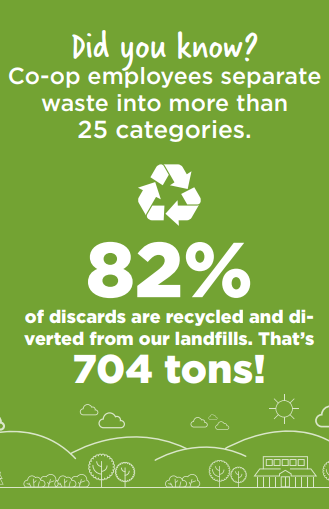
Right now, there is a trade-off in terms of food and plastic waste. Plastic is extraordinarily unique in its ability to preserve food and prevent spoilage and waste. But the trade-off is its very long lifespan.
Reducing plastic waste - by using alternative storage materials, or going package-free when possible - results in more food spoilage and waste, which can sometimes have a bigger ‘carbon footprint’ than plastic use alone.
The best way to summarize: as of March 2019, no perfect solution for plastic alternatives exist.
This isn't meant to make excuses for waste - as you may know, we already divert over 80% of our waste from the landfill. But it is important to know where things stand, and what some of the many decision-making factors are, that go into this debate about containers and plastic. Let’s break it down:
Bioplastics
Bioplastics often come from unsustainable sources - for example, monocropped GMO corn that could be used to feed people, or is grown on the other side of the country and requires a large carbon input to deliver.
As the name implies, bioplastics often have lifespans as long as petroleum plastics - they’re still plastic! The “end of life” assessment for bioplastics is not much better than petroleum plastics. For example, a single-use plastic fork made from GMO corn will still end up in the landfill.
Though there are recyclable and compostable bioplastics, they often require specialized machinery at waste disposal sites to be broken down. Our region does not currently have that infrastructure, and the additional carbon footprint to ship these materials elsewhere can quickly outweigh the ‘bio’ benefits.
The Co-op continues to explore options in this area: more readily compostable bioplastic bags are hitting the market which we will continue to test.
Alternatives to plastic
AFC has brought in cardboard packaging for some produce, like cherry tomatoes and strawberries. And yes, they are completely recyclable!
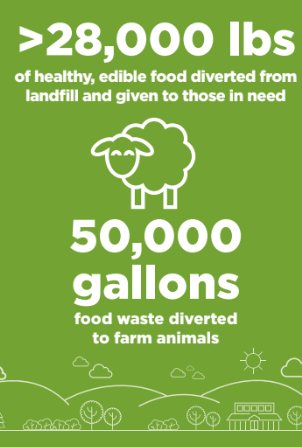
However, it can be difficult for customers to visually connect with the product - can you tell how juicy and ripe those strawberries are through the cardboard? Without that visual connection, a shopper may be hesitant to buy the product, inadvertently leading to more food waste (because the product stays on the shelf longer).
Cardboard also leads to more spoilage because of the lack of light and its ability to carry moisture (leading to molding).
Is generating more food waste an acceptable trade-off to having recyclable and compostable packaging? This is another instance where analyzing production inputs and requirements, instead of just ‘end-of-life’ issues for packaging, gives a better idea of the sustainability of a packaging type.
Plastics recycling
Many plastics are no longer being accepted by local waste management services. Generally, white, rigid plastics (example: yogurt containers) are still being recycled; clear, non-rigid plastics (soda bottles, salsa containers) are not. So buy smart!
Clamshells are a common area of concern. The Co-op is very lucky to be able to recycle plastic clamshells from products that were purchased at AFC. You can bring those clamshells back into the store for recycling. Even better, this recycling is more carbon neutral because the clamshells hitch a ride back to Eugene on existing truck routes (rather than a one-off transit run).
If you're purchasing greens, you can also bring your own container to fill from the bulk spinach and baby greens bins. Alternatively, OrganicGirl salad clamshells are made of 100% recycled plastic.
Our commitment
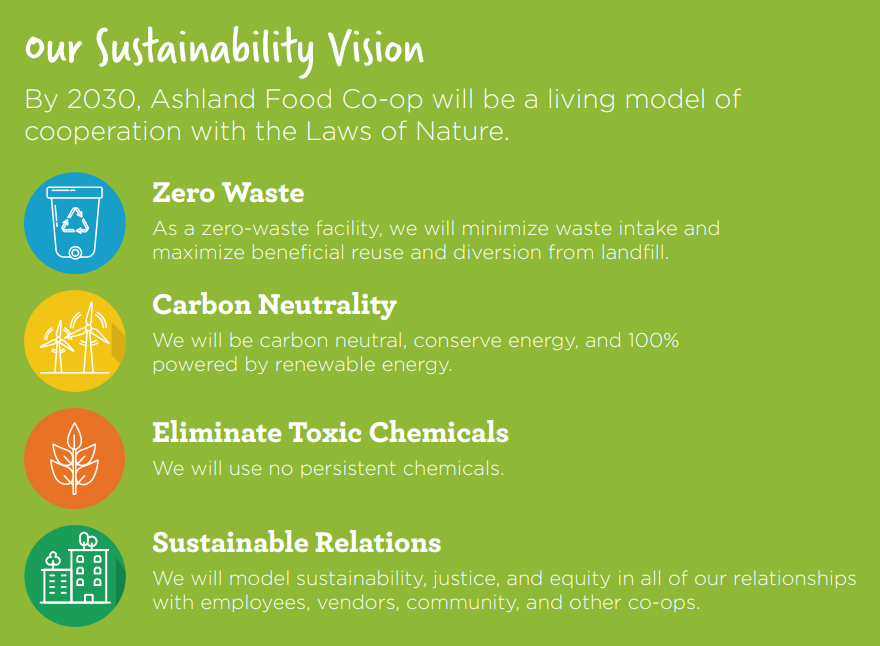
It’s easy to see that with the options available right now, there’s always a trade-off. In our own store and through the National Co-op Grocers network, we continue to look for a solution that is not petroleum-based, non-GMO, and that can be recycled or composted fully. When that solution arrives, we will be ready!
Right now, you should aim to reduce your overall plastic consumption when making purchasing decisions; choose reusable packaging when you do have to purchase plastic (clear salsa packages make great storage for leftovers); and choose recyclable plastic (white plastic and clamshells) if you think you’ll only get one use out of the packaging.
For some additional reading on the topic of plastics and packaging, check out this report put together by the Oregon Department of Environmental Quality.
More Co-op News

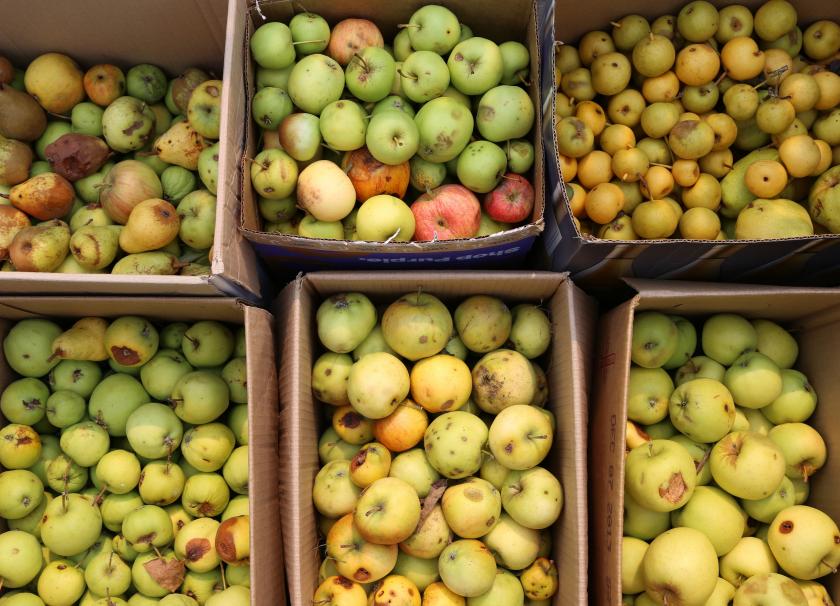
Community Cider Backyard Fruit Drive
How often can you browse the shelf at your neighborhood grocery store, see a bottle of hand crafted, local cider and say, “Hey, I help make that!” Well, at the Co-op you can.
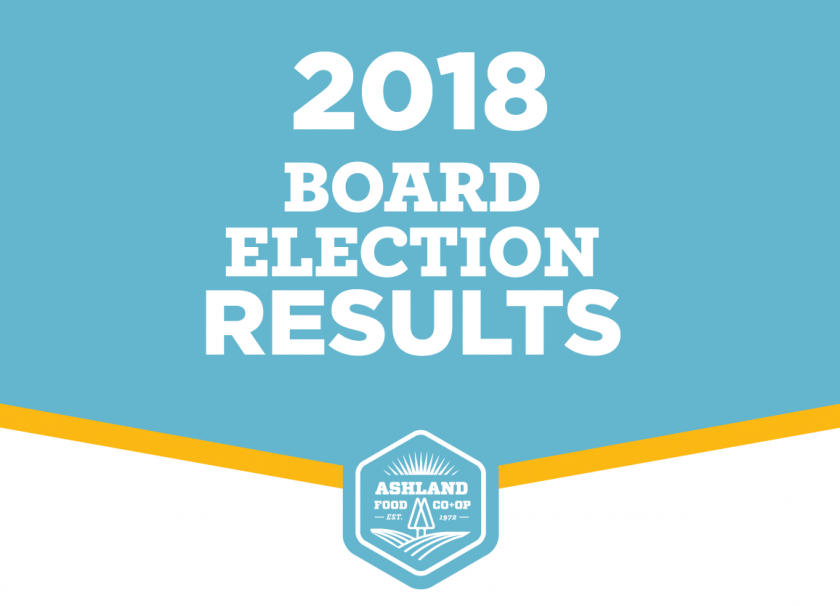
2018 Board Election Results
The AFC Board of Directors is pleased to announce the results of the 2018 Board Election. There were three excellent candidates running for two Board positions. In total, 905 votes were cast.
Congratulations to the following candidates who will serve three-year terms on the Ashland Food Co-op Board of Directors.
Thank you for voting!
.png)
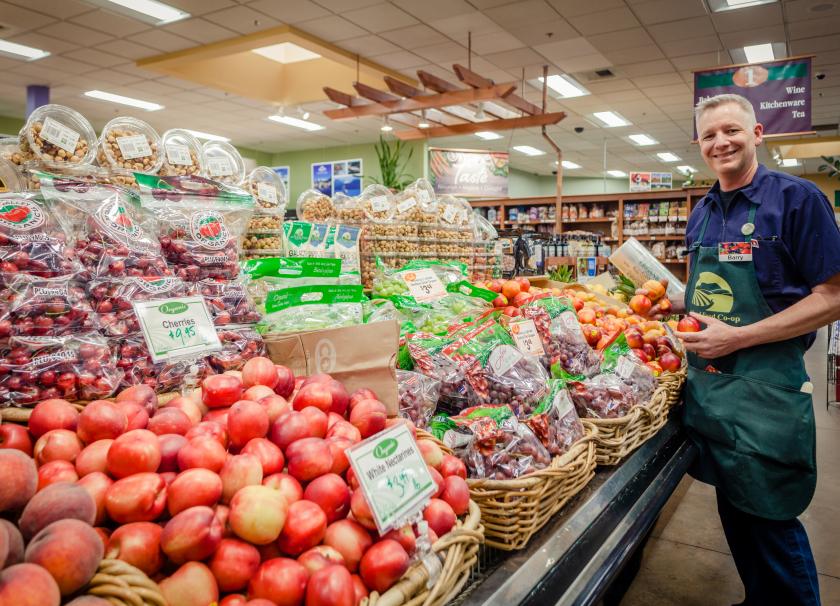
Meet Store Manager Barry Haynes
By Barry Haynes, Store Manager
Twenty three years ago my wife and I began our quest to relocate our family from the midwest to the west coast. We were looking for a beautiful area with an engaged community that would enable our children to thrive. Equally important, we wanted our new home to have a vibrant natural food store. When we arrived in southern Oregon, we felt as though we hit the jackpot.

Beat the Heat
When the heat of summer takes over, it can be hard on our bodies and moods. Don’t let the scorching temps get you down, cool off with one of these refreshing Staff recommendations.
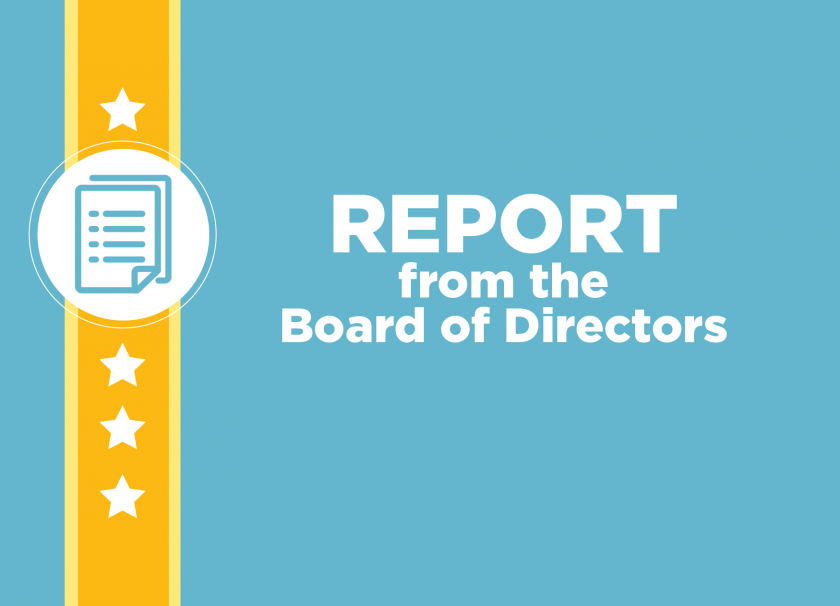
Report from the Board of Directors: Strategic Plan Update
By Jeff Golden, External Relations Committee Chair
Ashland Food Co-op is striding into the future with careful intention. We’re especially focused on the three top priorities of our strategic planning process, a collaboration of our board and management team. A quick update:
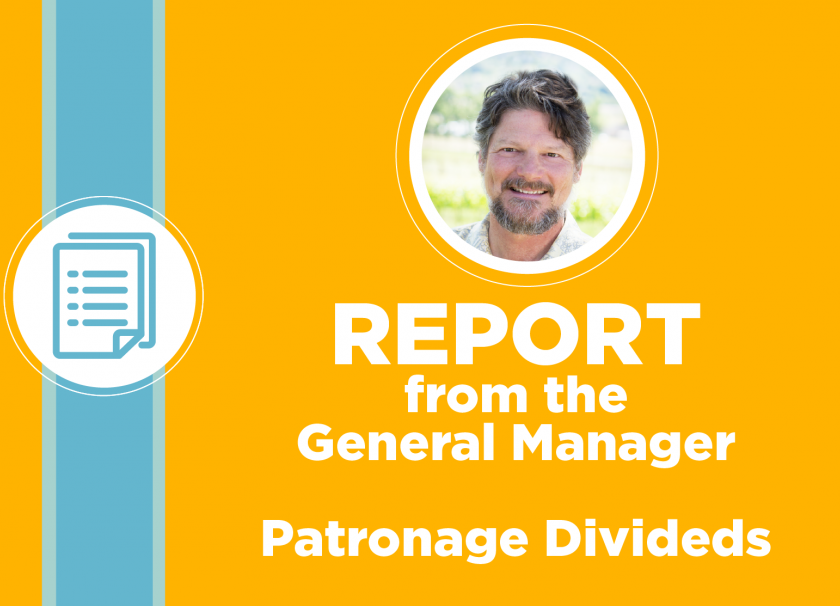

Riding off into the Sunset
By Annie Hoy, Retiring Marketing Manager
Since I was born and raised in far West Texas, I cannot help but use some imagery from what is so familiar to me.
Report from the General Manager and Board of Directors
By Emile Amarotico, General Manager and Ed Claassen, Board President
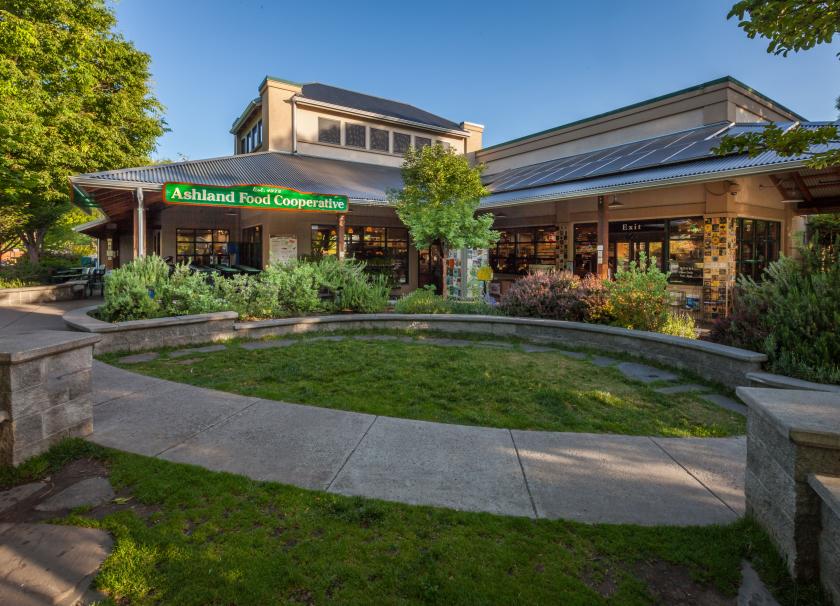
Ashland Food Co-op Signs Contract to Purchase Property
The Ashland Food Co-op expects to soon complete the purchase of an undeveloped lot at 120 Clear Creek Drive in Ashland. The parcel is located directly behind Ashland Lumber. This purchase is a major step in the Co-op’s vision for growing its downtown presence.
Staff Picks: Summer Hikes and Trail Snacks
Our staff loves to head outside and enjoy the gorgeous Oregon outdoors. Here's a few of their favorite trails and the Co-op snacks they like to take with them.
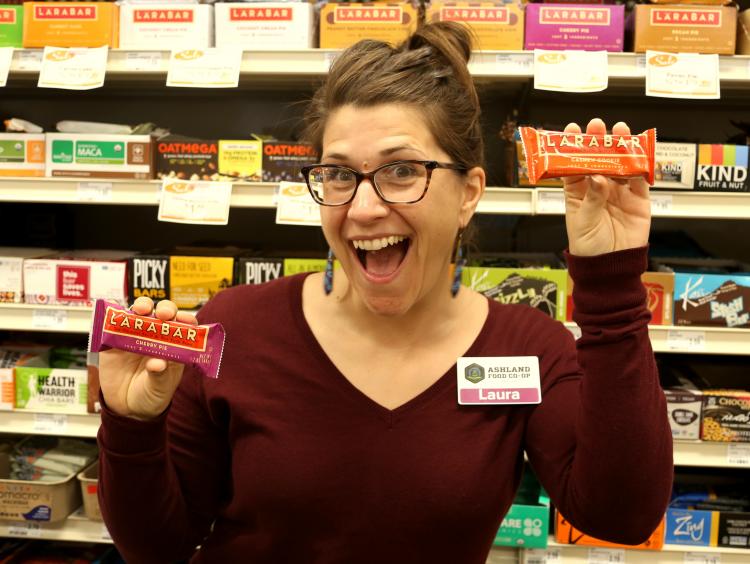
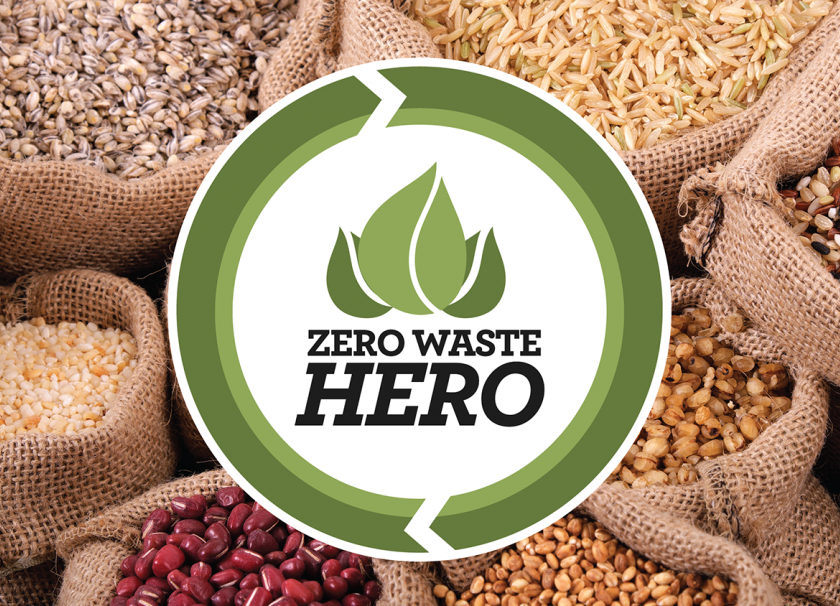
Be a Zero Waste Hero in Four Easy Steps
By Stephanie Koerella, Education Coordinator
Reducing our waste has continued to be of greater concern for Rogue Valley residents, especially since January, when options for recycling became even more limited. While the Ashland Food Co-op is ramping up our efforts to reduce waste as a business, there is a lot that our community can do at home to help the cause.
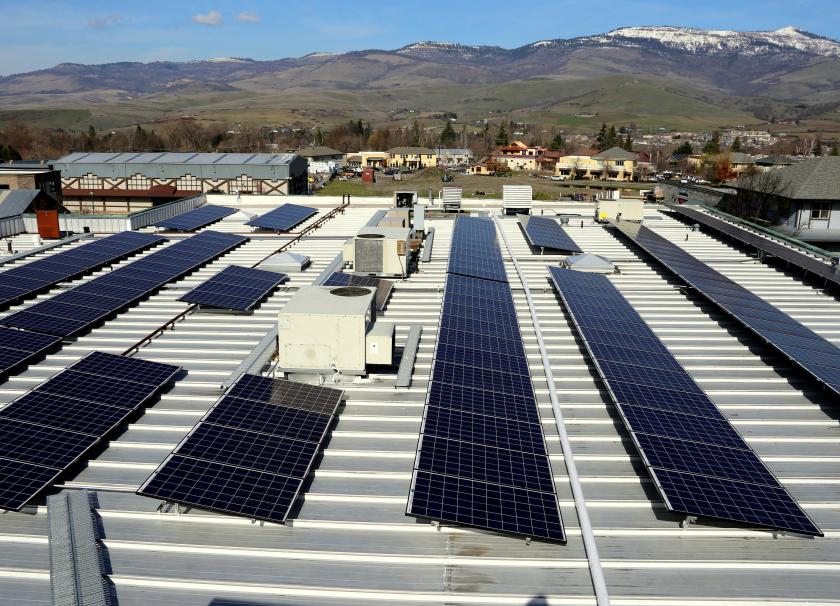
On the Road to Sustainability
By Laura Pfister, Media Coordinator
Forty six years ago, a group of families formed a buying club to access sustainable, local organic food as an alternative to modern industrial agriculture. This humble foundation of social and environmental responsibility started the Ashland Food Co-op and has shaped every decision we’ve ever made. It’s how, over four decades later, that a small buying club became a 30 million dollar, 17,500 square foot Certified Organic Retailer diverting 82% of their discards from the landfill.
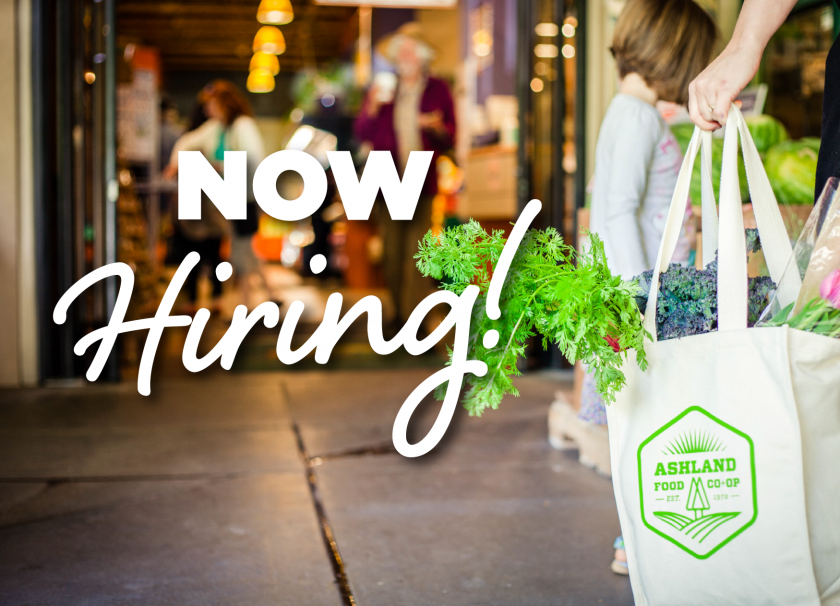
Staff Picks: Earth Friendly Products
In celebration of Sustainability Month in April, we asked our Sustainability Committee to share their favorite eco-friendly product.
